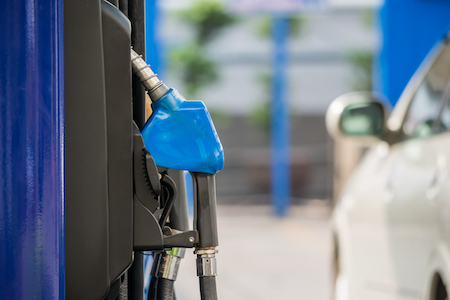Have you ever thought about what happens when you visit the gas station and fill up your car? Do you pay attention to where you get your gas? Do you know what’s inside?
The quality of the gasoline ultimately impacts the way your car handles and drives. Do you know what cheap gas does to your car? Does it really matter?
Let’s find out.
How gasoline works
Gasoline is used to power your vehicles and other things we use every day. You may have noticed that gasoline comes with numbers representing different classifications of gas. These are octane ratings, usually 87, 89, and 91.
Octane ratings tell you how resistant the fuel type is to the combustion process. Pressure creates heat. The more pressure you apply, the hotter something gets. For gasoline, this tells you how much pressure is needed to heat it up until it combusts.
The higher the octane rating, the more resistant it is to spontaneously combusting. This is for performance issues. You don’t want the gasoline to ignite prematurely, which impacts the way your engine runs.
 The three most common types of gasoline are:
The three most common types of gasoline are:
Basic – 87 octane
Plus – 89 octane
Premium – 91 and above
The higher the octane, the more resistant it is to combusting under pressure. With some high-performance engines, they require higher compression rates, which means they operate using higher octane levels. Premium may be more expensive, but it’s required to keep the engine running well and keeping it efficient as it operates.
Before you fill up at the gas station, know which type of fuel your car demands. You can find this in your owner’s manual. If it states basic, it won’t help your vehicle to move to a higher octane level gasoline. It won’t increase performance or gas mileage. It will continue to burn it at the rate needed for your vehicle.
However, if your vehicle requires premium and you put in a lower grade, you can have what is termed “engine knock.” This happens when gas combusts prematurely and throws the balance off in engine timing. Your vehicle may be equipped to handle some of this with a timing sensor, but it’s still a good idea to protect it by inserting the correct octane level gasoline. A lessor octane puts undue stress on the engine, and over time, can increase the need for repair.
What gasoline does
Americans use over 360 million gallons of gasoline every single day. It’s hard to imagine life without the fuel source we’ve come to rely on.
When you pull into a gas station, you select the gasoline recommended for your vehicle. As you pump the gas, it flows directly down into the gas tank where it waits for use. Inside your vehicle is a fuel pump that pumps the gasoline into the fuel line as needed. It also has a measuring system to alert you when the gasoline in reserve gets low.
The fuel moves through a fuel filter to filter out harmful contaminants before it’s released into the fuel injectors. This keeps harmful debris away from your engine.
The fuel injectors operate via a piston that sprays gasoline into the cylinder. Air also enters the cylinder where it mixes with the gas, compressing the two together. A spark plug ignites the mixture, which causes the combustion reaction and forces the piston back down. This opens up the exhaust valves and forces the exhaust back out of the system.
This exhaust passes through the catalytic converter, which provides emissions control. It changes the chemical composition of the pollutants as they are released and turns them into harmless substances such as carbon dioxide, nitrogen, and water, before being released out into the air via the muffler.
What cheaper gasoline does
The next time you drive down the street, pay attention to the different fueling stations around your home. You’ll find plenty of the Top Tier gasoline companies – Shell ExxonMobil, BP, Chevron, Phillips 66, Texaco, and Valero, among others.
https://www.toptiergas.com/retailers/
They will tell you that their brand name gas is better than lower quality independent gas companies because of the detergents and ingredients it mixes in with the fuel. In some cases, car manufacturers may even recommend going with these better brands because of the “secret sauce” it mixes into the fuel mixture. They state that because of the uptick in detergents, lower quality fuel may allow carbon deposits into the combustion changers, which will cause the knocking or pinging commonly associated with premature fuel ignition.
Keep in mind that this is a recommendation only. Even smaller independents – cheaper gas stations – will still post octane levels for their gasoline. The difference is in the detergents. If you’re on the road and your tank is empty, by all means, fill up, even it means a tank of lower quality fuel. It still has certain qualities in it, and it won’t impact your engine with only one fill.
Numerous studies have been done to find out the differences between gasoline products, all of which have been met with skeptical conclusions. A chief engineer for Toyota’s Avalon found that after ten years of being in charge of his division, he’s never seen an engine with a deposit issue.
What should you do?
Still worried about what cheap gas will do to your vehicle? Pick the right station to suit your needs. Whether for convenience, cost, or preference, ensure you select the right octane rankings and your car should be just fine.
It’s much more important to schedule regular maintenance visits with your local mechanic, have the brakes tested, the oil changed, and monitor the health of your tires.
When is the last time your car was inspected? Schedule your maintenance visit today.
